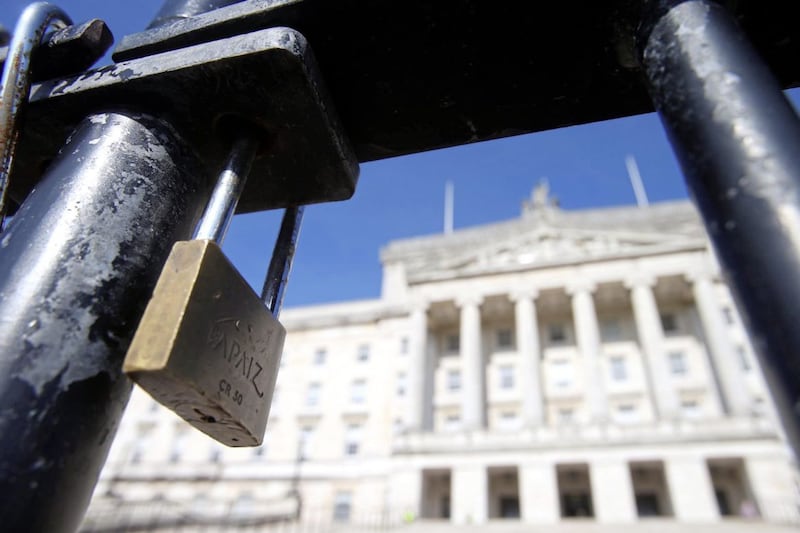I am writing this from the Big Apple where I was taking part in a conference to mark the 20th anniversary of the Good Friday Agreement, somewhat in advance of the actual date.
It is possible that the younger generation – our beloved millenials – are not fully aware of the key role the US played in securing the peace deal. President Bill Clinton was on the phone until the wee small hours, calling on different sides in the negotiations.
George Mitchell’s performance in chairing the talks has been widely praised. I had the great honour of moderating a discussion here in New York where he was a participant. Also on the panel was Nancy Soderberg, Clinton’s key adviser on the Good Friday process. It emerged that she is running for the House of Representatives as a Democratic Party candidate in Florida in the Congressional elections in November.
Given the depression in some circles over the failure of the talks to restore the Stormont executive, Senator Mitchell’s remarks were salutary. He recalled that, back in Castle Buildings in 1998, nobody believed it was going to be plain sailing once the pact was agreed. “Everyone of us who were involved recognised that there would be difficult decisions ahead,” he said.
And for those who feel the north of Ireland is unique in its failure to keep the political show on the road, he pointed out that there is currently a degree of “political dysfunction” in Washington and London as well as other places.
In his own way, Ian Paisley Jr, who was also on the panel, made a similar point. Now in his early 50s, the Democratic Unionist MP recalled that the era he grew up in was one of “bloody and difficult politics, to say the least”. But he added that, 20 years later, it is just “difficult” politics and he can live with that, “because the bloodshed is gone”.
He declined to comment on his mother, Baroness Paisley’s condemnation of the talks breakdown.
However, in relation to Brexit, he robustly defended his support for leaving the European Union, adding that the EU had played no part in the Good Friday process.
This didn’t go down well with fellow-panellist Mark Durkan. The former SDLP leader highlighted the EU dimension of the Good Friday document and warned about the potential of Brexit to cause serious economic damage throughout the island.
Former Sinn Féin MP Pat Doherty and James Cooper, who was previously Ulster Unionist Party chairman, also took part and the discussion which lasted some 40 minutes. It was part of an event entitled 20 Years of Peace, jointly sponsored by the peace-building charity Cooperation Ireland and the New York-based website IrishCentral.
As moderator, I didn’t express my own views, but let me say here that I actually found recent developments in the north somewhat encouraging. After a 13-month stalemate, the DUP and Sinn Féin negotiating teams arrived at some common ground.
It is worth repeating in this context the wise saying of the late New York Governor, Mario Cuomo: “You campaign in poetry. You govern in prose.” Nobody would say that the two parties in question are the political equivalents of WB Yeats, WH Auden or Sylvia Plath but they do come out with a fair bit of rhetoric on the campaign trail.
When parties back down on, or at least dilute, their public promises they come in for a fair bit of stick. They get a good old media bashing and quite often it is deserved but there are times, dear reader, when in the privacy of my soul I feel a certain admiration for their courage.
The most positive aspect of the document leaked to Eamonn Mallie (another participant in the New York event) is that the main obstacle to a settlement between the parties appears to be presentation rather than content. On the key issue of the Irish language, there are grounds for unionist reassurance in that there is no mention of quotas or road-signs. The notion of an Irish language commissioner with an Ulster Scots counterpart can only alarm the most paranoid elements. And what could be wrong with translation services, for goodness’ sake?
The same-sex marriage issue has been parked but it looks as if the car-keys have been given to Westminster and the vehicle will be back on the road in due course. There are other matters also which the parties need to resolve and hopefully they will do so before too long.
Since it is not every day I praise politicians, let me take my hat off, however briefly, to the nationalist/republican side for taking a calm and measured approach and to the unionist team for adopting a pragmatic and realistic stance. There’s hope for us all yet.
Ddebre1@aol.com








